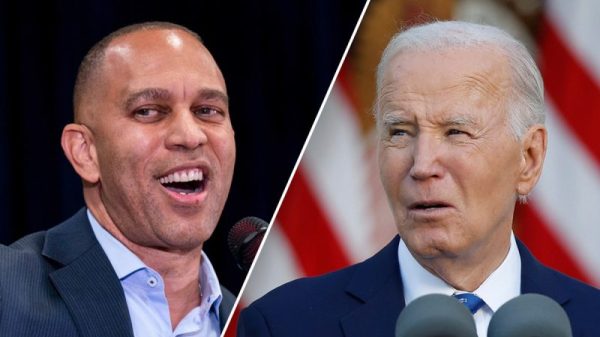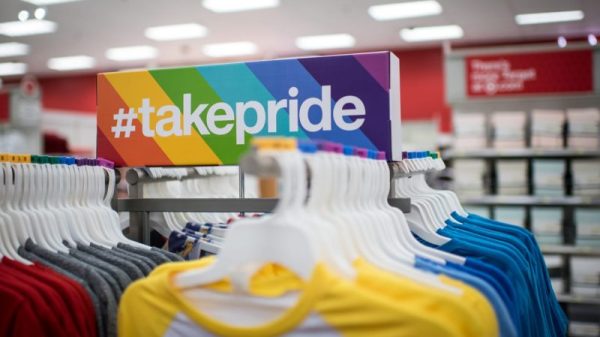Earlier this year, we learned about how the American political right’s most trusted news outlet proactively aired claims that its higher-ups understood to be baseless and false, and resisted fact-checking them. Fox News’s viewers were sold a fantasy about a stolen election and voting machines because it was decided that’s what they and the business model demanded — with it all accruing to the benefit of Donald Trump.
Months later, with Trump facing a pair of criminal trials over his stolen-election crusade, that fantasy still looms over the potential political fallout.
The Economist and YouGov this week became the latest to publish a head-scratching poll showing Republicans rejecting basic facts about Trump and his legal jeopardy.
The poll asked people whether Trump was “involved in an attempt to overturn the results of the 2020 election in Georgia.” He, of course, was. Myriad pieces of evidence make that abundantly clear. We have a literal recording of him asking Georgia’s secretary of state to “find” just enough votes to overcome his deficit, and Trump on the call explicitly cited “flipping” the results in the state.
But to most Republicans, this apparently never happened. Just 18 percent in the YouGov poll said Trump was involved in trying to overturn Georgia’s results, compared to 59 percent who say he wasn’t.
It’s now the second poll to show the vast majority of Republicans saying Trump wasn’t even involved in trying to overturn the election. YouGov asked similar, non-Georgia-specific questions in August. Republicans said just 38-30 percent that there was an attempt to overturn the election. That’s shocking in and of itself. But then it showed only half of that 38 percent said Trump was personally involved.
So in both polls, only about 1 in 5 Republicans said Trump tried to overturn the election — the very basic threshold fact that undergirds two of his four indictments.
But these are hardly the only polls showing Republicans and Trump backers expressing a skewed view of the underlying facts. To wit:
Marquette University polling in late 2022 showed 66 percent of Republicans said Trump hadn’t possessed “top secret and other classified material or national security documents at his home in Mar-a-Lago.” This despite the search of Mar-a-Lago having turned up such documents three months prior. That number later dropped after Trump’s indictment this summer, but only to 50 percent.A February 2021 USA Today/Suffolk University poll showed 58 percent of Trump voters said Jan. 6 was “mostly an Antifa-inspired attack that only involved a few Trump supporters.” That’s compared to 28 percent who said it was mostly a “rally of Trump supporters, some of whom attacked the Capitol.” (Nearly three years later, there remains no evidence of antifa inspiring or even participating in the attack.)A December 2021 CBS News/YouGov poll showed 67 percent of Republicans and 73 percent of Trump voters said the Jan. 6 riot was not an attempt “to overturn the election and keep Donald Trump in power.”A mid-2022 Monmouth University poll showed not only that 77 percent of Republicans said Jan. 6 wasn’t an “insurrection” but that a 51 percent majority said it wasn’t even a “riot.”
Some of these polls are dated. There are, regrettably, not too many surveys testing people’s knowledge of the basic facts surrounding these cases. But the thrust of all of them is similar, with half or more Republicans rejecting what is pretty plain to see.
As Philip Bump noted about the classified-documents poll, there’s a big question here about precisely what these findings mean. Do these people actually not believe these very evident things? Do they reflect a quibble rather than broad disagreement — the baseless idea that Trump declassified the documents, for example. or perhaps that most people who rallied on Jan. 6 didn’t go on to “riot?” Or might people just not like telling pollsters anything conceivably bad about Trump, when in fact they know better?
All of the above could play a role. But we can’t rule out the idea that people’s news diets — see the top of this post — mean they simply aren’t hugely familiar with the details.
If that’s the case, it could mean bad news for Trump in the 2024 election.
After all, these things figure to be major news over the next 12 months, as Trump goes on trial ahead of the 2024 election. YouGov polling also shows that nearly half of Republicans regard it as a “serious crime” to conspire to overturn election results — the basic charge in both Trump’s D.C. federal and Georgia state cases.
To the extent that they and swingy, Trump-leaning voters can be convinced that’s what happened, perhaps thanks to Trump’s own allies testifying against him, that could seemingly loom over him in a general election.
Of course, first they’ll apparently need to be convinced that he even attempted to overturn the results, much less “conspired” to do so.


































